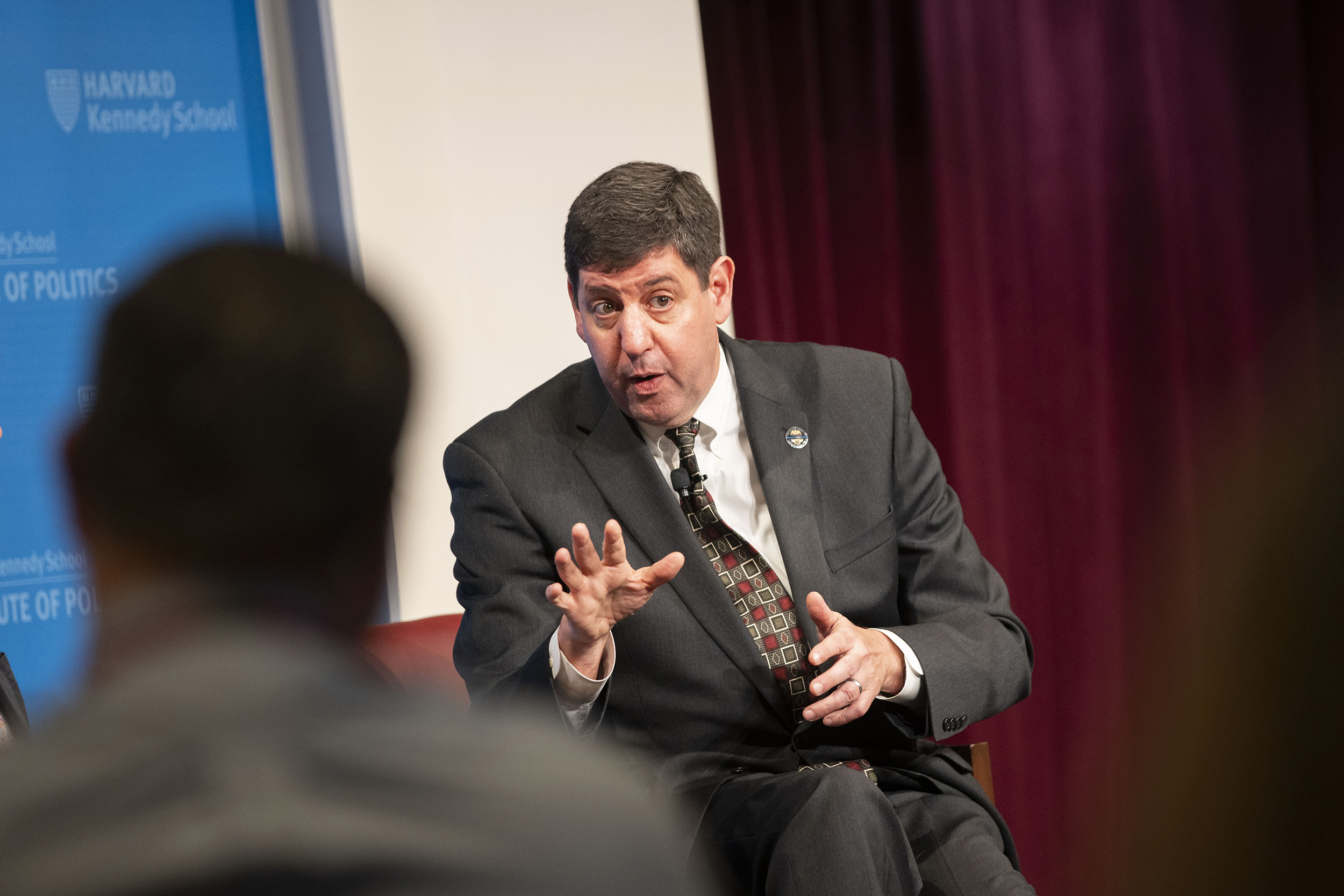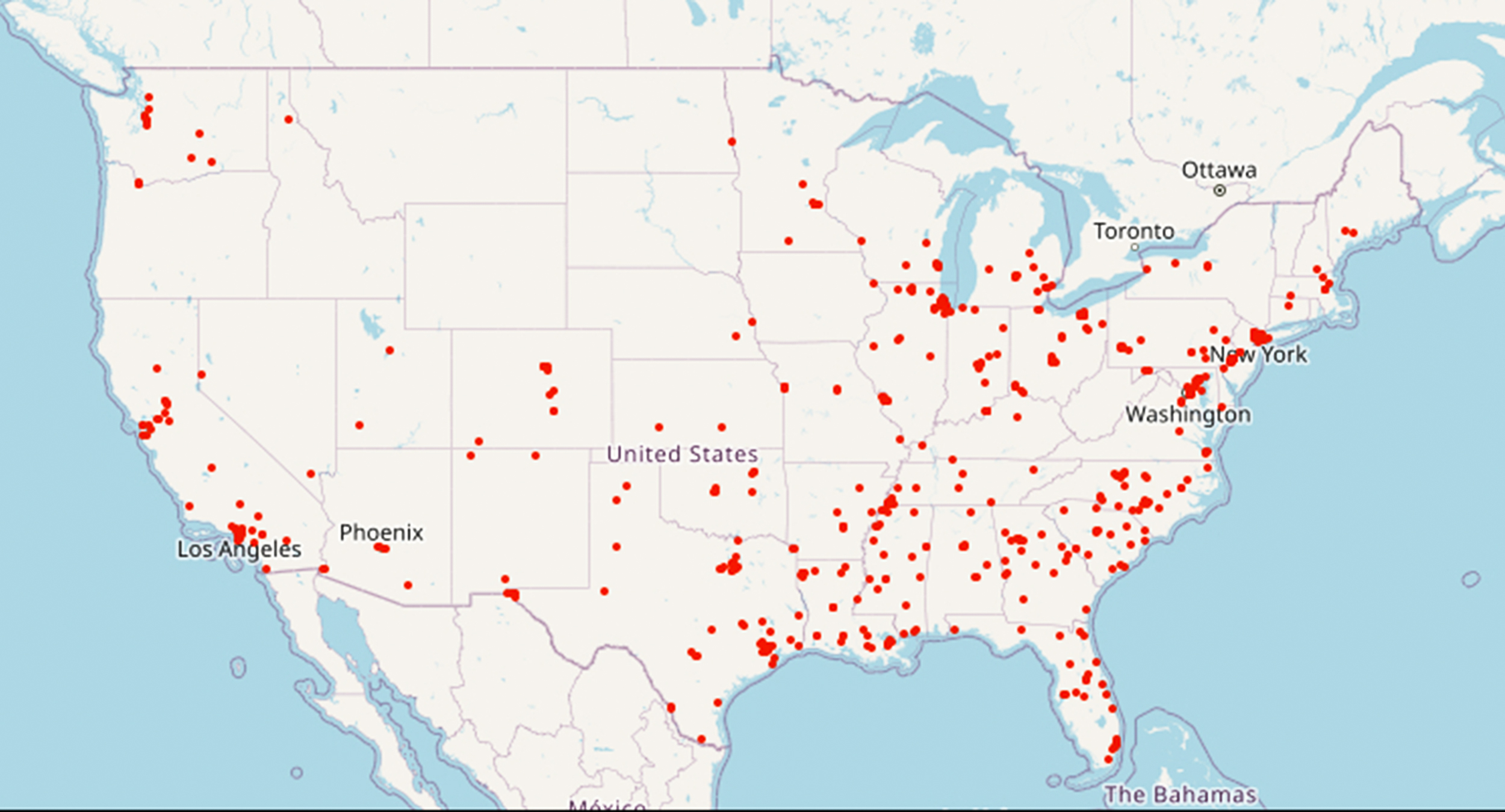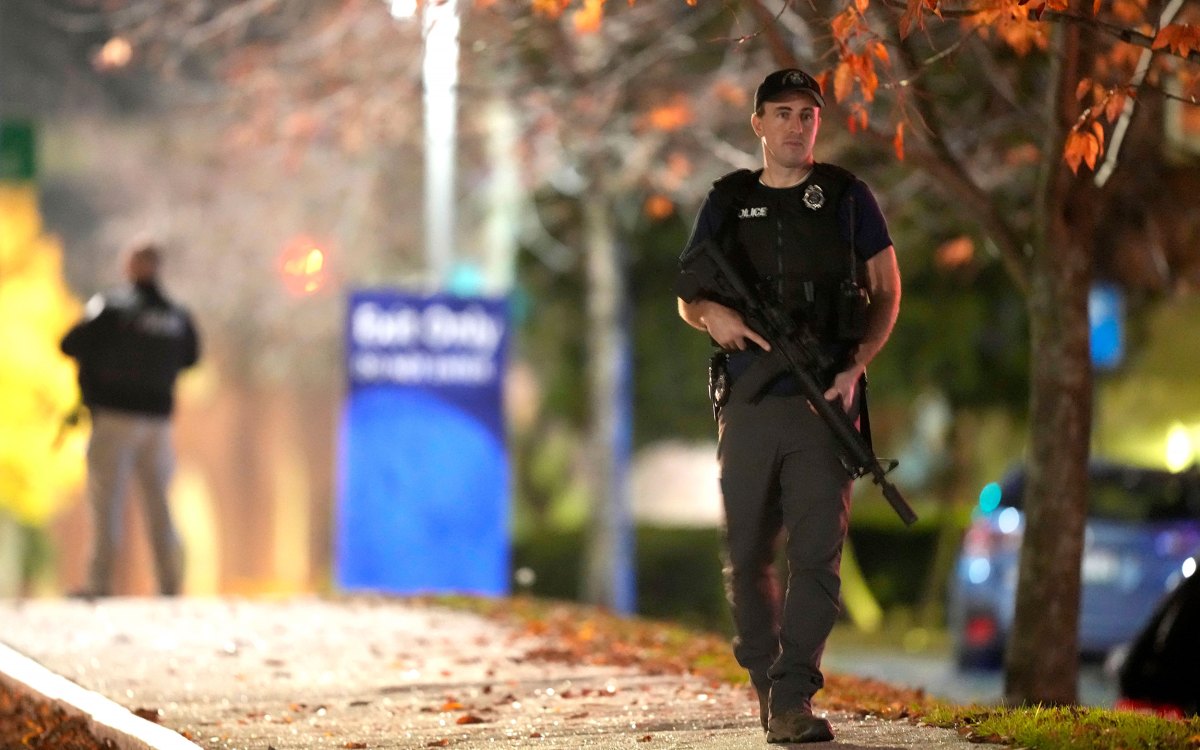
The increasing frequency of mass shootings poses “a real risk” of encouraging public acceptance and apathy toward gun violence, a major threat to the country, says Steven Dettelbach, director of the Bureau of Alcohol, Tobacco, Firearms and Explosives.
Niles Singer/Harvard Staff Photographer
U.S. hurtles toward new record for mass shootings
ATF director cites advances in gun technology, lack of restrictions on access, says change will come when Americans demand it
Steven Dettelbach, director of the Bureau of Alcohol, Tobacco, Firearms and Explosives (ATF), said the country is barreling toward a “tremendously troubling” new record this year for mass shootings after the rampage last week by a gunman in Lewiston, Maine, that left 18 dead and more than a dozen wounded.
So far in 2023 there have been more than 565 mass shootings, which the FBI defines as incidents in which at least four people are shot or killed. Gun-related incidents take the lives of 120 people a day in the nation and is the No. 1 cause of death of children, Dettelbach, J.D. ’91, noted during a Monday evening talk at Harvard Kennedy School with Caroline Light, a senior lecturer, director of Undergraduate Studies in Women, Sexuality and Gender, and author of “Stand Your Ground: A History of America’s Love Affair with Lethal Self Defense.”
Most dangerous right now are the increasing number and type of gun-related crimes, advances in firearm technology and in the distribution of guns, and that it’s “easier than ever” for those prohibited by law from having firearms to still get access, he said. Just hours before the Lewiston shootings, he noted, the U.S. Senate passed a measure that would lower the barriers for military veterans deemed psychologically incompetent to keep and use firearms. In the end, he said, real change will only come if the American people demand it.
The ATF is a federal law-enforcement agency within the Department of Justice that tracks the illegal use and transfer of guns. It is less well-known than the FBI, which also confronts gun violence. The bureau, which has faced controversies over various missteps over the years and steady opposition by the gun industry and some conservative lawmakers, went without a permanent head for seven years before Dettelbach’s bipartisan Senate confirmation in July 2022.
Asked what can be done to reverse the grave mass-shooting trendlines, Dettelbach said the ATF has to get better at identifying the relatively small group of criminals most likely to commit gun violence. And the bureau needs to stop, “or at least slow down,” the flow of firearms to this group.
The ATF runs a center that helps trace guns associated with violent crimes. Congress, though, has prohibited it from maintaining a national gun registry or having searchable online databases, so gun tracing searches must be done by manually, one by one.
Mass shootings in 2023

Source: Gunviolencearchive.org
Beyond the immediate danger posed to individuals and communities, the increasing frequency of mass shootings poses “a real risk” of fostering public acceptance and apathy toward gun violence, said Dettelbach.
“The No. 1 threat to our public safety is the idea of acceptance and apathy, that somehow the American people would come to believe that this is part of who we are, part of our cultural history,” he said. “It is not part of our national story or the founders’ vision that people can’t sit on their porches in neighborhoods all over this country without being afraid of being shot. It is not part of who we are as a people that you can’t go to a kids’ bowling night or to a rock concert or to church or to temple or to a mosque to pray without worrying that you’re going to be a victim.”
Even with broad public support for measures such as background checks, the scope of the gun violence problem in the U.S. is “overwhelming,” driving many who want change to throw up their hands and say, “It’s too much, we can’t deal with it,” Dettelbach said. “That’s a huge problem and we can’t let that be.”
The current record for U.S. mass shootings is 688, set in 2021, according to the Gun Violence Archive, which began tracking data in 2014.
In recent years, legal constraints that once allowed states and cities to restrict gun ownership have been rolled back by the Supreme Court (which in November will hear another major case, U.S. v. Rahimi, on the limits of restrictions on gun ownership) and deeply entrenched political partisanship on both sides of this issue have made it much harder to find enough common ground to get new gun legislation passed.
Even amid those obstacles, Dettelbach said there is some reason for hope. The ATF, the DOJ, many lawmakers, anti-gun violence advocates, and President Biden, who established the first White House Office of Gun Violence Prevention in September, all recognize the urgency of the issue and are committed to getting something done. What also needs to happen, though, is that the majority of Americans who want some action taken to reduce gun violence need to assert themselves and demand that where there is consensus, things move forward.






